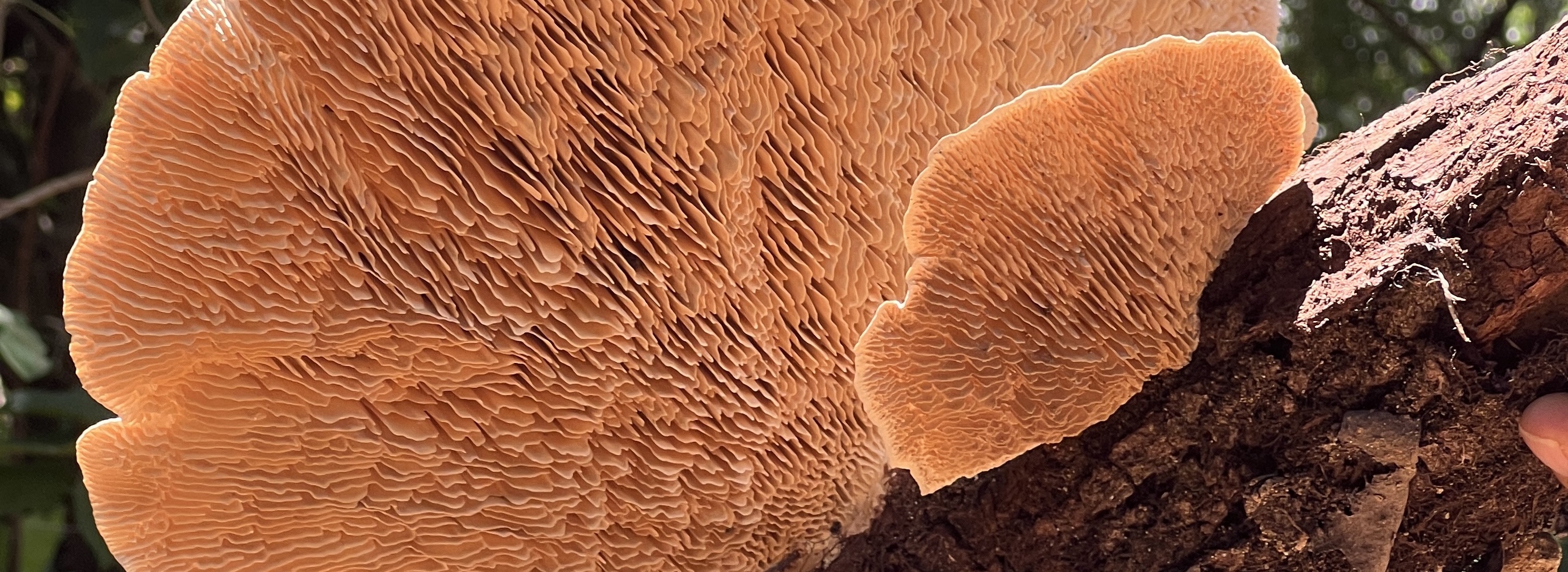
Monteverde Institute: Tropical Ecology and Conservation
Alternative Title
Gambas en micro hábitats de macroinvertebrados de hojarasca
Files
Download Full Text (323 KB)
Publication Date
November 2010
Abstract
The functional properties of buttresses are still debated, but hypotheses include they may be a response to mechanical strain and a method to increase the surface area of the tree base; the increased surface area may provide increased structural support and a larger area of surface soil which may give a competitive advantage for nutrient uptake. The effects of the latter “nutrient hypothesis” and whether it supports a rich community of leaf-litter fauna has not been well-studied. A more abundant and species rich macroinvertebrate community in buttresses could be indicative of a more nutrient rich microhabitat. In this study I sampled buttressed trees on hillslopes in the cloud forest of Monteverde, Costa Rica to determine if the buttress microhabitat supports a greater species richness and abundance of leaf-litter macroinvertebrates. Leaf litter was collected from three zones around each tree: upslope buttresses, downslope buttresses, and an adjacent plot. Both macroinvertebrate species richness and abundance are higher in up and downslope buttress plots than in adjacent plots, although only upslope and adjacent differed significantly. Also, a significantly higher number of larvae were found in the buttress plots. Together, the increased abundance and richness of both adult and larval macroinvertebrates in buttress plots suggest that tree buttresses provide preferable habitat for these leaf-litter fauna.
Resumen
Las propiedades funcionales de las gambas todavía se encuentran en debate, pero las hipótesis incluyen que puede deberse a una respuesta mecánica hacia la tensión y como un método para aumentar el área de la base del árbol; el aumento en el área puede proveer un aumento en el soporte estructural y una mayor área para la absorción de nutrientes. El efecto de esta última hipótesis y de si sostiene una mayor comunidad de la fauna de hojarasca no ha sido bien estudiado. Una mayor abundancia y riqueza de especies de macroinvertebrados en las gambas puede ser un indicativo de un micro hábitat más rico en nutrientes. En este estudio muestree las gambas en las laderas en el bosque nuboso de Monteverde, Costa Rica para determinar si los micro hábitats de las gambas contienen una mayor abundancia y riqueza de especies de macro-invertebrados de hojarasca. La hojarasca fue colectada en tres zonas alrededor del árbol, las gambas con pendiente ascendente, descendente y en un cuadrante adyacente al árbol. Ambas riqueza y abundancia de especies son mayores en gambas ascendentes y descendente que en la cercanía al árbol. Además, un número significativamente mayor de larvas fue encontrado en los cuadrantes de las gambas. Juntos, este aumento en la abundancia y riqueza tanto de adultos como de larvas en macroinvertebrados en las gambas sugiere que estas proveen un sitio preferible para la fauna de hojarasca.
Keywords
Plant anatomy, Species diversity, CIEE Fall 2010
Palabras claves
Anatomía vegetal, Diversidad de especies, CIEE Otoño 2010
Extent
9 pages
Geographic Location
Monteverde Biological Station (Costa Rica)
Ubicación geográfica
Estación Biológica de Monteverde (Costa Rica)
Holding Location
Monteverde Institute
Language
English; Spanish
Media Type
Articles
Format
Digital Only
Identifier
M39-00272
Type
Book
Recommended Citation
Somerville, Samuel C., "Buttresses as microhabitats for leaf-litter macroinvertebrates, November 2010" (2010). Monteverde Institute: Tropical Ecology and Conservation. 90.
https://digitalcommons.usf.edu/tropical_ecology/90


